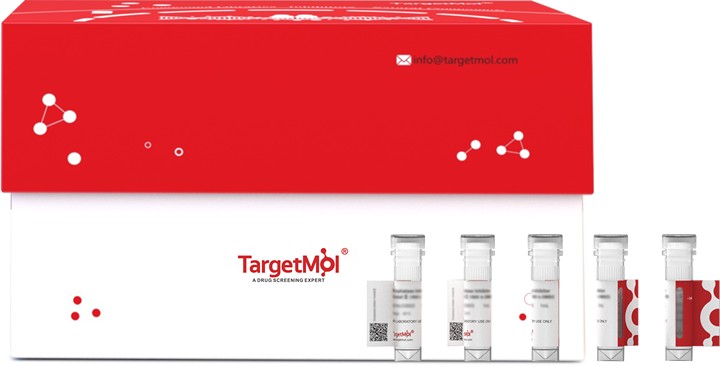Shopping Cart
- Remove All
 Your shopping cart is currently empty
Your shopping cart is currently empty

NEDD4L Protein, Human, Recombinant (GST) is expressed in E. coli expression system with N-GST tag. The predicted molecular weight is 138.5 kDa and the accession number is Q96PU5.

| Pack Size | Price | Availability | Quantity |
|---|---|---|---|
| 20 μg | $284 | 20 days | |
| 100 μg | $590 | 20 days | |
| 1 mg | $2,530 | 20 days |
| Biological Activity | Activity has not been tested. It is theoretically active, but we cannot guarantee it. If you require protein activity, we recommend choosing the eukaryotic expression version first. |
| Description | NEDD4L Protein, Human, Recombinant (GST) is expressed in E. coli expression system with N-GST tag. The predicted molecular weight is 138.5 kDa and the accession number is Q96PU5. |
| Species | Human |
| Expression System | E. coli |
| Tag | N-GST |
| Accession Number | Q96PU5 |
| Amino Acid | ATGLGEPVYGLSEDEGESRILRVKVVSGIDLAKKDIFGASDPYVKLSLYVADENRELALVQTKTIKKTLNPKWNEEFYFRVNPSNHRLLFEVFDENRLTRDDFLGQVDVPLSHLPTEDPTMERPYTFKDFLLRPRSHKSRVKGFLRLKMAYMPKNGGQDEENSDQRDDMEHGWEVVDSNDSASQHQEELPPPPLPPGWEEKVDNLGRTYYVNHNNRTTQWHRPSLMDVSSESDNNIRQINQEAAHRRFRSRRHISEDLEPEPSEGGDVPEPWETISEEVNIAGDSLGLALPPPPASPGSRTSPQELSEELSRRLQITPDSNGEQFSSLIQREPSSRLRSCSVTDAVAEQGHLPPPSAPAGRARSSTVTGGEEPTPSVAYVHTTPGLPSGWEERKDAKGRTYYVNHNNRTTTWTRPIMQLAEDGASGSATNSNNHLIEPQIRRPRSLSSPTVTLSAPLEGAKDSPVRRAVKDTLSNPQSPQPSPYNSPKPQHKVTQSFLPPGWEMRIAPNGRPFFIDHNTKTTTWEDPRLKFPVHMRSKTSLNPNDLGPLPPGWEERIHLDGRTFYIDHNSKITQWEDPRLQNPAITGPAVPYSREFKQKYDYFRKKLKKPADIPNRFEMKLHRNNIFEESYRRIMSVKRPDVLKARLWIEFESEKGLDYGGVAREWFFLLSKEMFNPYYGLFEYSATDNYTLQINPNSGLCNEDHLSYFTFIGRVAGLAVFHGKLLDGFFIRPFYKMMLGKQITLNDMESVDSEYYNSLKWILENDPTELDLMFCIDEENFGQTYQVDLKPNGSEIMVTNENKREYIDLVIQWRFVNRVQKQMNAFLEGFTELLPIDLIKIFDENELELLMCGLGDVDVNDWRQHSIYKNGYCPNHPVIQWFWKAVLLMDAEKRIRLLQFVTGTSRVPMNGFAELYGSNGPQLFTIEQWGSPEKLPRAHTCFNRLDLPPYETFEDLREKLLMAVENAQGFEGVD |
| Construction | 2-975 aa |
| Protein Purity | > 90% as determined by SDS-PAGE. |
| Molecular Weight | 138.5 kDa (predicted) |
| Endotoxin | < 1.0 EU/μg of the protein as determined by the LAL method. |
| Formulation | If the delivery form is liquid, the default storage buffer is Tris/PBS-based buffer, 5%-50% glycerol. If the delivery form is lyophilized powder, the buffer before lyophilization is Tris/PBS-based buffer, 6% Trehalose, pH 8.0. |
| Reconstitution | Reconstitute the lyophilized protein in sterile deionized water. The product concentration should not be less than 100 μg/mL. Before opening, centrifuge the tube to collect powder at the bottom. After adding the reconstitution buffer, avoid vortexing or pipetting for mixing. |
| Stability & Storage | Lyophilized powders can be stably stored for over 12 months, while liquid products can be stored for 6-12 months at -80°C. For reconstituted protein solutions, the solution can be stored at -20°C to -80°C for at least 3 months. Please avoid multiple freeze-thaw cycles and store products in aliquots. |
| Shipping | In general, Lyophilized powders are shipping with blue ice. Solutions are shipping with dry ice. |
| Research Background | E3 ubiquitin-protein ligase which accepts ubiquitin from an E2 ubiquitin-conjugating enzyme in the form of a thioester and then directly transfers the ubiquitin to targeted substrates. Inhibits TGF-beta signaling by triggering SMAD2 and TGFBR1 ubiquitination and proteasome-dependent degradation. Promotes ubiquitination and internalization of various plasma membrane channels such as ENaC, SCN2A/Nav1.2, SCN3A/Nav1.3, SCN5A/Nav1.5, SCN9A/Nav1.7, SCN10A/Nav1.8, KCNA3/Kv1.3, KCNH2, EAAT1, KCNQ2/Kv7.2, KCNQ3/Kv7.3 or CLC5. Promotes ubiquitination and degradation of SGK1 and TNK2. Ubiquitinates BRAT1 and this ubiquitination is enhanced in the presence of NDFIP1. Plays a role in dendrite formation by melanocytes. Involved in the regulation of TOR signaling. Ubiquitinates and regulates protein levels of NTRK1 once this one is activated by NGF. |

Copyright © 2015-2025 TargetMol Chemicals Inc. All Rights Reserved.